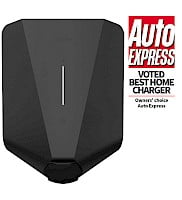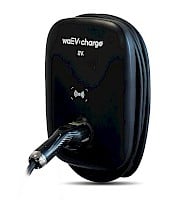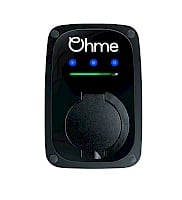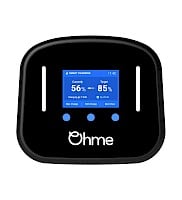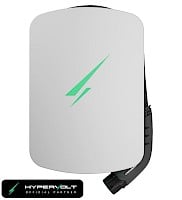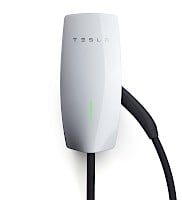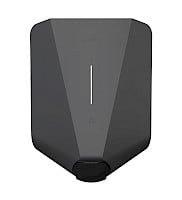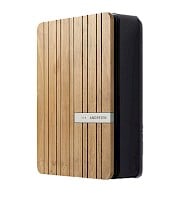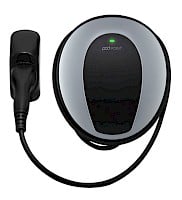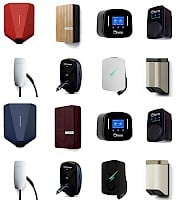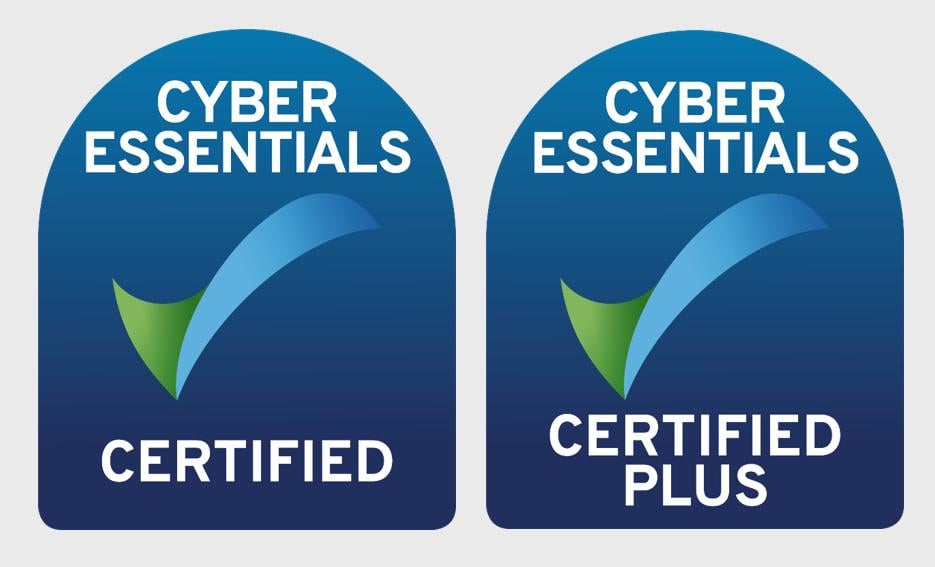Compare EV Charger features with our charge point comparison tool
Compare electric car charge point features side by side with our handy EV charger comparison tool. Find out which car charger is right for your home charge point installation.
- Cost
- Charger Cost
- Charger & Installation
- Finance from
- Charger Specs
- Power Output
- 7.4kW
- 22kW
- Connectivity
- Wi-Fi
- Bluetooth
- 3G/4G/5G
- Cable Options
- Tethered
- Untethered
- Cable Included
- Vehicle Connector Type
- Type 1
- Type 2
- Solar Functionality
- Looks & Style
- Colour Options
- Size (mm)
- App Specs
- Intelligent Octopus Compatible
- Ovo Drive Anytime Compatible
- Boost Mode
- Cost Tracking
- Smart Scheduling
- Ratings & Warranty
- Warranty
- Customer Rating
- Editor's Rating
- Manufacturer Support Rating
- £587.00
- £917.80
- £12.53/month
- 256(H) x 193(W) x 106(D)
- 3 years
- See Review
- Buy Now
- £539.00
- £922.00
- £12.59/month
- 361(H) x 250(W) x 100(D)
- 3 years
- See Review
- Buy Now
- £575.00
- £929.70
- £12.70/month
- 230(H) 140(W) 100(D)
- 3 years
- See Review
- Buy Now
- £612.00
- £966.90
- £13.20/month
- 170(H) x 200(W) x 100(D)
- 3 years
- See Review
- Buy Now
- £649.20
- £1079.00
- £14.73/month
- Over 100+ colour combinations
- 286(H) x 196(W) x 111(D)
- 3 years
- See Review
- Buy Now
- £750.00
- £1170.00
- £14.75/month
- 328(H) x W243(W) x D101(D)
- 3 years
- See Review
- Buy Now
- £528.00
- £1080.00
- £14.75/month
- 345(H) x 155(W) x 110(D)
- 3 years
- See Review
- Buy Now
- £570.00
- £1300.00
- £17.75/month
- 256(H) x 193(W) x 106(D)
- 3 years
- See Review
- Buy Now
- £660.00
- £
- £19.16/month
- 3 years
- Buy Now
- £1007.00
- £1589.00
- £21.70/month
- 100+ Colours & Styles
- 494(H) x 348(W) x 148(D)
- 3 years
- See Review
- Buy Now
- £714.00
- £
- £238.00/month
- 330(H) x 290W) x 112D)
- 3 years
- Buy Now
- £
- £
- N/A
- See Review
- Buy Now
- Add New
Add a charger to your comparison
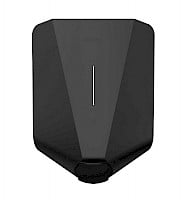
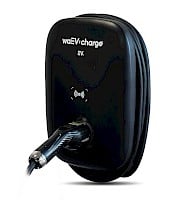

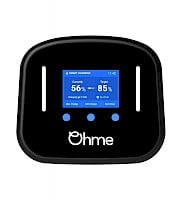
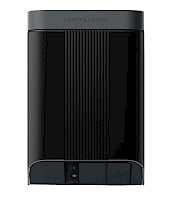
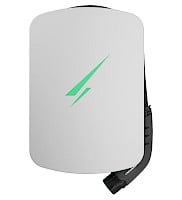
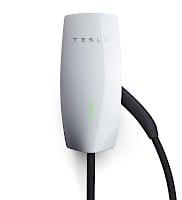


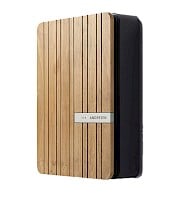
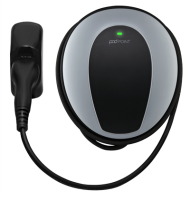
Compare EV Charger Features
Nowadays there is an EV charger to suit most people's needs but how do you find out what your needs are? Continue reading and we will explain each row on the comparison tool above to help you find out what you need in an EV charge point when it comes to your vehicle and property.
Cost
This is easily one of the most influential factors when it comes to picking which car charging point you choose for your property. In the costs breakdown, we reveal the price, tell you if finance is available on the charge point and how much finance costs.
Price From: This is how much the charge point will cost to have fitted to your wall. Please note the amount shown is a starting price only and includes a basic installation.
You can get an installation estimate using our Easy Estimate tool if you just want a quick idea of costs. Or if you're ready for your charge point installation, you can get an accurate quote by requesting a quote on your chosen charger - simply click "Get a Quote" on your charger at the top of this page.
Finance Available?: Rather than paying the whole amount for the EV charger and installation upfront, we also offer the ability to spread the cost out over several months. All our charge points have finance options except for the Tesla Wall Connector, which needs to be ordered directly from Tesla.
Finance From: This is starting monthly cost of each charge point.
Charger Specs
In the dropdown menu of charger specs, you will see the key features that we think matters most when choosing a charge point.
Charger Power Output: In a nutshell, charger power output is how much power (measured in kilowatts) the charge point can send to your vehicle. Most home EV charge points in the UK charge at a rate of 7.4kW however some will charge up to 22kW though this is uncommon due to most UK households having a single-phase power supply (for more information on 22kW three-phase charging, please see our guide).
Connectivity: To qualify as a “smart charger”, home charge points need to be able to connect to a network where charge sessions data can be recorded and the user can adjust settings such as charge schedules. An EV charge point can connect to a network in three ways, such as via your home WiFi, 3G/4G or both. Each has its strengths and weaknesses depending on the size of your property and where it is situated.
WiFi-enabled charge points require an internet connection and access to your broadband router. This means that you will need to consider the strength of your WiFi connection in the area where you want your EV charger to be installed.
Just like your mobile phone, some charge points can use a mobile data connection such as a 3G or 4G signal to connect to a network. This connection is great for users with large properties as there is no need for the charger to be near your home WiFi signal. We do advise, however, that you check the mobile signal strength in the area where you want to install your charge point to be installed with your mobile phone before installation (we also request that you do this as part of our online site survey).
Type: This refers to the cable type that the EV charger supports. Most EVs come with a connector type known as ‘Type 2’ as standard. Some older EVs however might use a "Type 1" connector so it’s important to check what cable type your vehicle supports before purchasing your charge point.
If the type says "universal socket", this means the EV charger has a socket only for connecting your own charging cable, rather than having a cable permanently attached to the unit. These types of charge points can be used with both all electric vehicles.
Power lead included: This simply tells you if a charging lead is included with your charging unit. If the EV charger is tethered (meaning that the cable is permanently attached to the unit), the box in the table will be ticked. Please note that we do not include cables with our untethered charge points, so you will need to take the cost of a cable into account if you do not already have one.
Earth rod needed: Some EV charge points require an earth rod to be installed at your property. An earth rod is a long metal copper pole usually around one metre long that is inserted into the ground near the charge point.
Having an earth rod installed will add cost to the installation due to the extra work of driving the earth rod into the ground.
Looks and size
Once a charge point is mounted to your wall, it’s going to be there for a while, so it’s important to be happy with how it looks before you go ahead and click the buy button.
In the ‘looks and size’ drop-down menu, we provide a size diagram, colour options and a check box telling you if the charge point comes with a dock for attaching your charging cable to.
App Specs
Most smart car chargers come with an accompanying smartphone app to help you control various functions, such as setting up a EV charging schedule.
Within the app specs drop-down, you will be able to see:
Charge scheduling: The ability to program your EV charger so that it only charges your vehicle at a specific time of the day. If you have a multi-rate energy tariff such as economy seven or a time-of-use tariff, having the ability to schedule charges is very beneficial as you can set your charge schedule to only charge your EV or PHEV when your electricity rate is cheaper.
Tariff Optimisation: Some EV charge points can automatically charge your car during the cheapest rates on your energy tariff as their app allows you to "tell" the charger which home energy tariff you are on.
That means you can let the charger do all the hard work when it comes to scheduling, but it is particularly handy if you have a tariff like Octopus Agile where the electricity price changes every 30 minutes.
You can usually set a price cap so that your charge point never charges your EV above this limit.
Security: We have explained why you probablydon’t need to worry about someone using your electricity to “steal” your electricity but for that extra peace of mind, many of our charge points can “lock” when not being used. This feature prevents anyone from using the charge point until you unlock it again.
Most charge points can be locked and unlocked via a button in the app, while others will only charge during the times you have input into your schedule, which should also prevent others using the charger without permission.
Power output adjustment: This feature allows you to set a maximum cap on how fast your charge point charges your vehicle.
Charger options
Charger power output: Home charge points usually charge at a rate of 7.4kW however some have the option to charge up to 22kW as long as you have a three-phase power supply.
Solar functionality: This option allows your home EV charger to channel energy collected from any fitted solar panels fitted. With some solar panel compatible charge points, special equipment might be needed during installation which may add cost to the installation cost as a result. For more information about solar panels, be sure to check out our guide.
Untethered: If your charge point is untethered, it means that it has a charging socket rather than a charging cable permanently attached to the unit. Untethered charge points often do not come with a charging cable meaning that you will need to supply your own (sometimes your vehicle comes with the relevant charging cable).
Tethered option: This is the opposite of untethered, meaning that the charge point has a charging cable permanently attached to the unit itself.
If you decide to have a tethered charge point installed, we strongly recommend that you measure the distance between your chosen charge point location and the spot you usually park your vehicle in to make sure that the charger’s cable length is long enough to reach your vehicle.
Load balancing: An EV charge point with load balancing can automatically adjust the amount of power it is sending to a vehicle it is connected to. This feature is useful for people who plan to have multiple charge points charging more than one vehicle at the same time.
Rating & Warranty
Here we explain how many years of warranty you get with each charge point, rate the manufacturer’s support system, our product rating and add an editors review.
Warranty: All charge points we sell come with a manufacturer’s warranty. Having a manufacturer warranty means that if your EV charger stops working before the warranty ends, the manufacturer will fix or replace it free of charge.
Manufacturer support rating: Here we rate how effective the manufacturer’s support department is at fixing any problems that might occur with your charge point on a scale of one to five.
Product rating: Here we offer our own rating based on the performance and features of the EV charge point. Please note this is just our opinion and while we might rank a charge point low, we also encourage you to choose a charge point based on what fits your needs best.
Editor's review: Our editor Danny (who is an EV owner) writes in-depth reviews on the charge points we sell which you can view by clicking (or tapping) the “read here” button.
In each review, Danny talks in-depth about the charger itself, the app and any unique features the charge point might have. Some reviews are also filmed and uploaded to our Youtube channel.

